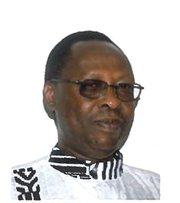By Samson Kirui
Until his death on 8th December 2007, John Ruganda was the best playwright in East Africa. He was one of the fathers of Uganda’s Literature as well as an advocate and a mentor to many in the field of critical writing.
Ruganda attended Makerere University where he studied English. While in the university, Ruganda edited two student journals, The Makererean and Penpoint.
In 1972, Ruganda fled to Kenya due to volatile situation in his homeland where he first worked as an editor at Oxford University Press in Nairobi.
He later moved to University of Nairobi as a lecturer in the Department of Literature where he specialized in teaching drama. By the time of his demise, he was teaching at University of North (now, University of Limpopo) in South Africa.
John Ruganda had eleven plays in his belt, some of which were not published. The published plays are; The Burdens (1972), Black Mamba and Covenant with Death (1973), Music without Tears (1982), Echoes of Silence (1986), The Floods (1988) and Shreds of Tenderness (2001).
His unpublished works include; The State Zombie, The Glutton, Pyrrhic Victory and End of Endless. Due to his peerless critical approach on contemporary concerns, Ruganda’s work has been used as set texts in ordinary and advanced levels of Literature in Kenya and Uganda.
Covenant with Death won East Africa Creative Writing Competition in 1966. The Burdens won the second prize of the 1972 Jomo Kenyatta prize for Literature and in the same year Black Mamba was awarded an Excellence Certificate during Makerere University inter hall competition in 1965 and End of Endless worn the Uganda Theatre Guild competition in 1966.
In 1979 The Floods received international acclaim when it was presented at the festival of small and experimental scene in Yugoslavia.
A close scrutiny on Ruganda’s works paints a vivid picture of a disadvantaged African man. His plays are largely inspired by a keen observation of socio- political realities in an independent African state.
His works aims at lining up the rot in the society. He ruthlessly exposes political oppression and repression. However, Ruganda aims as once echoed by the late literary critic Prof Chris Wanjala is to bring sanity to the society where truth is swept under the carpet.
The text Shreds of Tenderness, for instance, focuses on a military coup and its adverse effects on political, social and economic wellbeing of the nation.
The play revolves around three characters (Stella, Odi and Wak), siblings who are negatively affected in different ways during the coup d’etat depicted in the play.
Black Mamba expounds the social and intellectual, Professor Coarx. Coarx teaches in one of the universities and he is known for speaking against immorality and debauchery yet as the play unfolds, he is seen to be fully immersed in the acts that he is condemning.
With assistance of his house help, Berewa, bring women to the house of the Professor. The professor engages in sexual relationships with several women including Berewa’s wife.
The play is an amusing social satire, which exposes professor’s double standards life. It paints a plight of an African state under white expatriates who preach water and drink wine.
Covenant with Death dramatizes social and psychological problems brought about by alienation. It deals with the myth of Kaikara, the goddess of fruition who gives a girl child to an old couple that was childless but cautions that the girl should not get married.
In a society where women who are not married are scorned upon and treated with contempt, Mutama finds it difficult to continue living. She decides to run away to get married to a white man in the city. Unfortunately, Mutama cannot conceive because the goddess has cursed her.
Mutama comes back home and dies from a mysterious disease which the villagers believes to be a curse that is as a result of disobedience to the goddess of fruition.
The Burdens, set in Uganda in early 1970s explores a military coup. It was published a year after Idi Amin took over power from Milton Obote. Obote’s regime is accused of corruption, dictatorship and financial scandals.
The text underscores the disillusionment of the people whose unfulfilled hopes are blamed on the political instability in the country. The text paints a society where citizens do not get access to health facilities, food and clothing.
The socio-economic and political status of the country is controlled by hungry leaders. Just as the citizens are expecting salvation from a change of leadership, they are further plunged into the morass of poverty and fear by Amin’s dictatorial regime.
The Floods, published in 1988 is contextually set in Uganda. It depicts the political turbulences experienced in 1970s. The text paints a grim picture of the period of the brutal and dictatorial repression of Idi Amin.
The play mirrors how the Ugandan state used its powers abusively. The massive killings that characterized Amin’s regime are represented in the play through scene of violence memorized and enacted by the characters in the play.
Ruganda gave his life to the art of writing with an aim of bringing sanity to the society. The use of sordid imagery and biting satire make his works dazzle to date.






